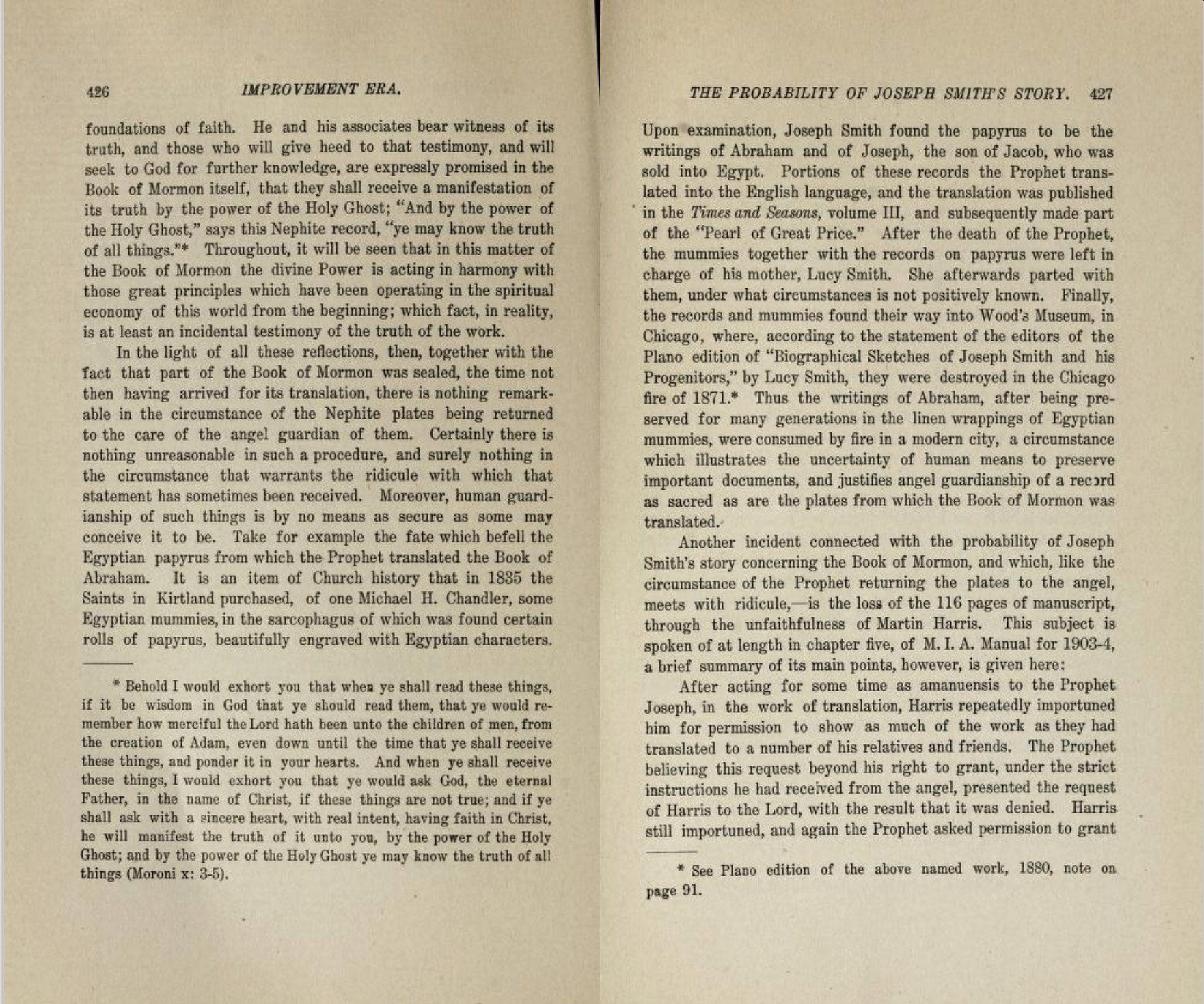BHR discusses loss of BOA papyrus, relates to the BOM plates being given back to Moroni.
- Type
- Periodical
- Hearsay
- DirectLateSecondary
- Reference
B. H. Roberts, "The Probability of Joseph Smith's Story," Improvement Era 12, no. 6 (April 1904): 426–427
- Scribe/Publisher
- Improvement Era
- Audience
- Latter-day Saints, Reading Public
- Transcription
In the light of all these reflections, then, together with the fact that part of the Book of Mormon was sealed, the time not then having arrived for its translation, there is nothing remarkable in the circumstance of the Nephite plates being returned to the care of the angel guardian of them. Certainly there is nothing unreasonable in such a procedure, and surely nothing in the circumstance that warrants the ridicule with which that statement has sometimes been received. Moreover, human guardianship of such things is by no means as secure as some may conceive it to be. Take for example the fate which befell the Egyptian papyrus from which the Prophet translated the Book of Abraham. It is an item of Church history that in 1835 the Saints in Kirtland purchased, of one Michael H. Chandler, some Egyptian mummies, in the sarcophagus of which was found certain rolls of papyrus, beautifully engraved with Egyptian characters. Upon examination, Joseph Smith found the papyrus to be the writings of Abraham and of Joseph, the son of Jacob, who was sold into Egypt. Portions of these records the Prophet translated into the English language, and the translation was published in the Times and Seasons, volume III, and subsequently made part of the "Pearl of Great Price." After the death of the Prophet, the mummies together with the records on papyrus were left in charge of his mother, Lucy Smith. She afterwards parted with them, under what circumstances is not positively known. Finally, the records and mummies found their way into Wood's Museum, in Chicago, where, according to the statement of the editors of the Plano edition of "Biographical Sketches of Joseph Smith and his Progenitors," by Lucy Smith, they were destroyed in the Chicago fire of 1871. Thus the writings of Abraham, after being preserved for many generations in the linen wrappings of Egyptian mummies, were consumed by fire in a modern city, a circumstance which illustrates the uncertainty of human means to preserve important documents, and justifies angel guardianship of a record as sacred as are the plates from which the Book of Mormon was translated.
- Citations in Mormonr Qnas
The B. H. Roberts Foundation is not owned by, operated by, or affiliated with the Church of Jesus Christ of Latter-day Saints.

